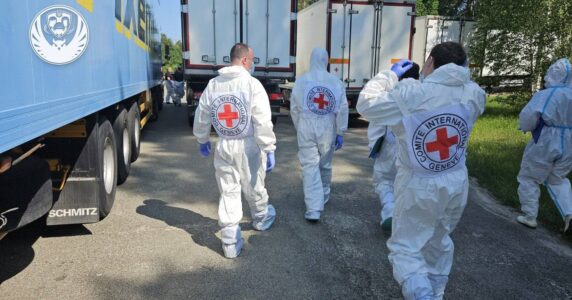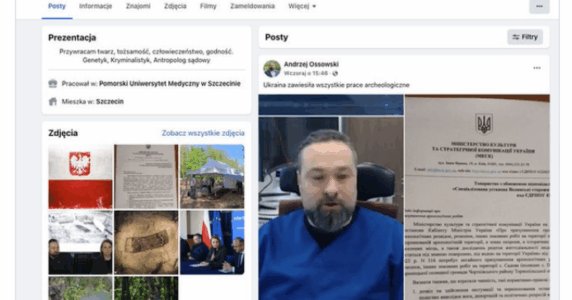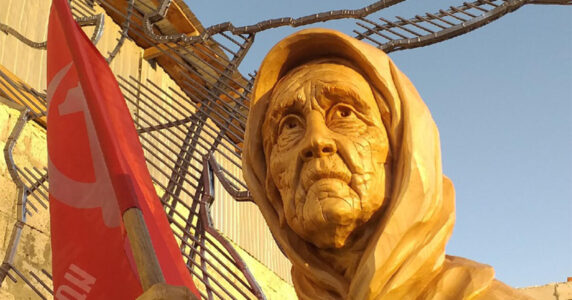Navigation and useful materials
On Sunday, the Ukrainian national football team presented its new kit for Euro 2020 which is about to get started this Friday, June 11. A blue-and-yellow shirt depicts the national map of Ukraine, led by the slogan “Glory to Ukraine”. No breaking news, right?
However, the reaction of the Kremlin’s officials was both furious and asymmetric which once again proved that for the Kremlin any pretext would go. So why this time, official Moscow grabbed the case of the football team’s kit as a source of inspiration for disinformation and propaganda spread?
Firstly, what triggered the Kremlin, was the map itself, depicting the territorial borders of Ukraine and the Ukrainian Crimea.
In her almost hysterical reaction on the Telegram channel, Maria Zakharova, Russian Foreign Ministry spokeswoman, argues that by showing the map, Ukraine “attached” its territories to “Russia’s Crimea”, allegedly, with the purpose to create the “illusion of the impossible”. She even called this action “a trick”.
In reality, the image of the map printed on the kit perfectly matches the current borders of Ukraine’s territories. What appears to be a trick instead, is the way Russia grabbed a piece of the foreign state’s territory back in 2014, continuing to reassure the entire civilised world it was not frankly stolen. In such a way, the Kremlin seeks to legalise the occupation of Crimea as a part of Ukraine’s sovereign territories, as well as its current aggression.
Today, the fact that the attempted annexation of Crimea was illegal, is undisputable. In particular, it is recognised by the UN General Assembly Resolution 68/262 which emphasises the territorial integrity of Ukraine.
For the reason described above, Ukraine would not be able to “attach” its territories to the Crimean Peninsula contours — simply because Crimea is Ukraine.
Secondly, the slogan “Glory to Ukraine” which is widely used in Ukraine and is well-known among its international partners, for the Kremlin works like a red flag for a bull.
In the same statement, Zakharova refers to it as to the “nationalistic cheer”, proposing several alternative “versions” of the slogan’s origins. For instance, in line with the Kremlin’s constant narrative that “Ukraine is managed by Nazi”, she compares the motto to the Nazi greeting. In this purposeful discrimination campaign against Ukraine she goes that far that even refers to the matches in grammatical constructions.
As a matter of fact, the origins of the greeting “Glory to Ukraine” alongside the response “Glory to heroes” are rooted at the end of the 19th century’s history. It gained more recognition after it was introduced as a motto of the Liberation Movement which emerged in 1917 in the aftermath of the February Revolution and later became known as a movement for the independence of Ukraine. Since 2018 it is also adopted as the official greeting in the Armed Forces of Ukraine. Moreover, “Glory to Ukraine” can now be heard as the foreign states leaders’ greeting during their official visits to Ukraine — as an affirmation of friendly relations and support to Ukrainians.
Lastly, it is indicative that the Kremlin could not focus on a single “version” of the slogan’s origins. The very fact that now, to discriminate Ukraine, propagandists have to rely on grammatical constructions as their key argument, tells us a lot about the “reasonableness” of the allegations.
Thirdly and finally, the team’s kit attracted so much attention also due to the situation in which Russia has placed itself. Being banned for two years by the Court of Arbitration of Sport due to the use of doping, Russia is looking for any occasion to cancel the ban and to get back its “soft power” weapon, to enable sports as its propaganda tool.
For instance, Russian MP Dmitry Svishchev, calling the Ukrainian kit “provocation”, said that it can be seen as “the expression of a certain political position which differs from the position of our country’s [Russia’s] position”. Arguing that sports should be separated from politics, he appealed to the UEFA which, he believes, should have vetoed the kit. Similarly, Kremlin spokesperson Dmitry Peskov replied that “sport is sport, and we [in Russia] need to be above the incitement of hatred between Russians and Ukrainians” when asked about what would happen if Russian and Ukrainian teams meet each other at the championship.
As reality shows, Russia has been constantly putting extreme efforts to incite hatred using sports, art, culture, history, and language as the tools of propaganda. Precisely, these are the methods, so often used by the Kremlin itself while sports is considered one of the main spheres of the Kremlin’s “soft power”.
Now, when Russia is banned from participation at any sports events under its name, flag, and national anthem, it seeks to blame other states — namely, Ukraine — for promoting its national symbols.
When facing a player like Russia, regardless the location — whether it is a football arena or the negotiation room — one should not be too naїve to expect a fair play.
If you have found a spelling error, please, notify us by selecting that text and pressing Ctrl+Enter.


